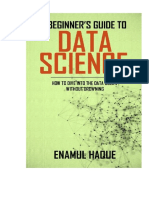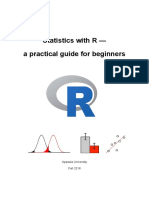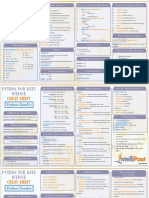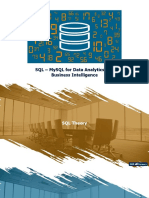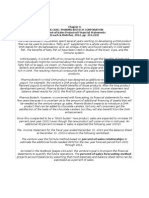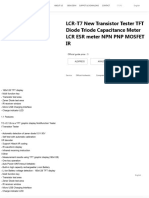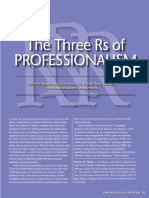100% found this document useful (1 vote)
1K views29 pagesEssential Math for Aspiring Data Scientists
This document provides an overview of the essential math concepts needed for data science, including algebra, calculus, linear algebra, and additional resources. It lists topics like derivatives, integrals, matrices, and eigendecompositions. The goal is to outline the fundamental math foundations and provide links to learning materials.
Uploaded by
isra figueirido arnosoCopyright
© © All Rights Reserved
We take content rights seriously. If you suspect this is your content, claim it here.
Available Formats
Download as PDF, TXT or read online on Scribd
100% found this document useful (1 vote)
1K views29 pagesEssential Math for Aspiring Data Scientists
This document provides an overview of the essential math concepts needed for data science, including algebra, calculus, linear algebra, and additional resources. It lists topics like derivatives, integrals, matrices, and eigendecompositions. The goal is to outline the fundamental math foundations and provide links to learning materials.
Uploaded by
isra figueirido arnosoCopyright
© © All Rights Reserved
We take content rights seriously. If you suspect this is your content, claim it here.
Available Formats
Download as PDF, TXT or read online on Scribd
/ 29
